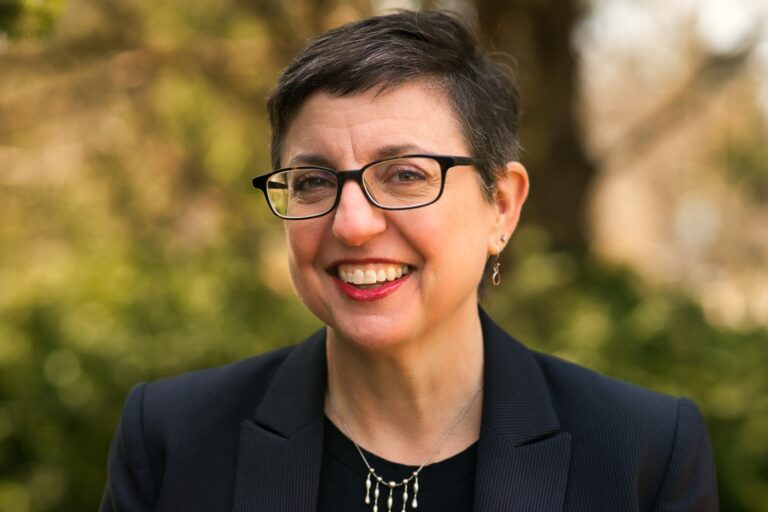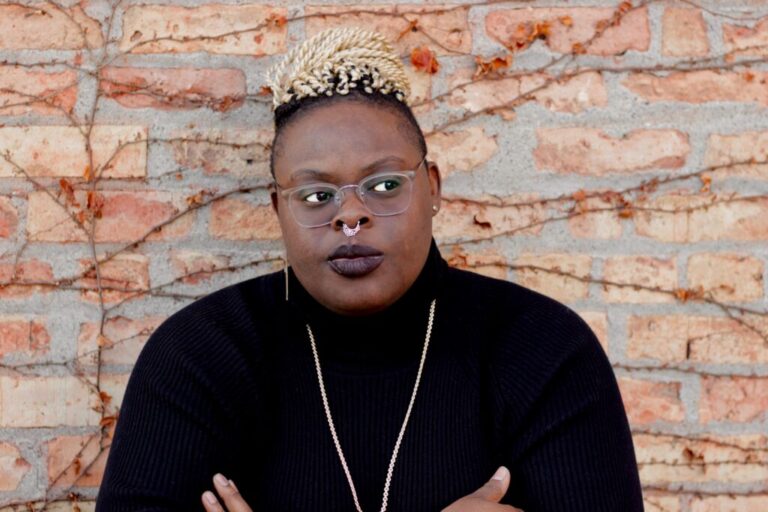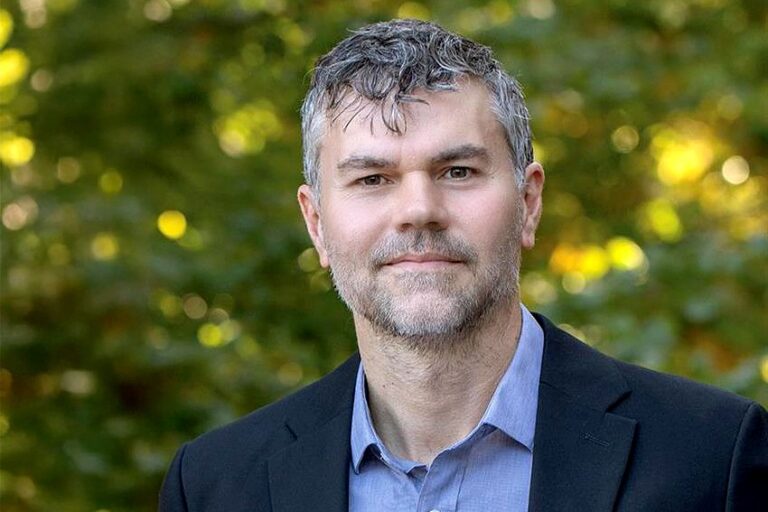The Department of African American and African Studies (AAAS) is offering several new or revised undergraduate courses during the Spring 2022 semester that each, in their own way, highlight and emphasize the department’s focus on Black Feminisms, Black Genders Studies, and Black Sexualities Studies.
“Excellence in undergraduate education requires an ethic of care for students’ ideas and a demonstrated actionable respect for who they are as whole persons. For many first-generation college graduates (myself included), the impact of undergraduate education extends beyond the individual; AAAS courses offered this spring are for students who want to learn more about issues that matter to them and their communities,” said Ruth Nicole Brown, Professor and Inaugural Chairperson of the Department of African American and African Studies. “Students will have the opportunity to take classes with brilliant interdisciplinary AAAS faculty whose cutting-edge intellectual leadership shapes and transforms academic and popular conversations while inspiring us all to act on behalf of the most just futures we can imagine.”
Students will have the opportunity to take classes with brilliant interdisciplinary AAAS faculty whose cutting-edge intellectual leadership shapes and transforms academic and popular conversations while inspiring us all to act on behalf of the most just futures we can imagine.
Ruth Nicole Brown, Professor and Inaugural Chairperson of AAAS
The MSU Board of Trustees approved the creation of a new AAAS Department in February 2019 and Brown was appointed the Inaugural Chairperson of the department in July 2020. Tamura Lomax, Foundational Associate Professor, joined the department a few months later. This year, five new faculty members have been hired by the department as it aims to transform Black Studies through its emphasis on Black Feminisms, Black Genders Studies, and Black Sexualities Studies.
The following gives more information on the AAAS classes being offered in the spring and the faculty who are teaching them:
Pathways into AAAS (AAAS 100)
This three-credit course will cover current trends and topics in African American and African Studies. AAAS is an interdisciplinary field thus AAAS 100 explores the Black experience from several perspectives: history, politics, economics, art, sociology, psychology, religion, and culture. In addition, this course will allow ways for students with both nascent and developed interest in Black studies to delve deeper into their intellectual passions.

“AAAS 100 is a class for those with burgeoning and developed interest in African American and African Studies to dig deeper into historical and contemporary issues in the field,” said Dr. Chamara Jewel Kwakye, who is teaching the course. “So, students can expect to learn about historical events that they probably were not taught in K-12 curriculum. They can expect to learn how those historical events continue to have current implications impacting the contemporary moment, and they can expect to sharpen their critical thinking skills, and they can expect to flex their creative skills.”
it’s my fervent hope that AAAS 100 students will see themselves as a part of that legacy and commitment to critically understanding and dismantling anti-Blackness wherever they see it and improving the day-to-day lived realities of all Black people.
Dr. Chamara Jewel Kwakye
Many of the assignments for the course will ask students to take risks and use art (storytelling via sound, video, visual art, poetry, etc.) to respond to the things they are learning in class, which will be taught in-person by Kwakye, whose interdisciplinary interests are at the intersections of race, class, gender, sexuality, ethnography, performance, and pedagogy. Her areas of specialization are Black feminism, Black girlhood, gender and sexuality in the Black diaspora, performance studies, qualitative methodologies, digital humanities, and community engagement. She is especially interested in the stories Black women and girls tell that examine their power and agency in oppressive spaces.
“Beyond the course learning objectives, I hope students gain an appreciation for African American and African Studies as a discipline,” Kwakye said. “As a discipline, AAAS is dedicated to understanding and improving the lived experience of Africans and African Americans so it’s my fervent hope that AAAS 100 students will see themselves as a part of that legacy and commitment to critically understanding and dismantling anti-Blackness wherever they see it and improving the day-to-day lived realities of all Black people.”
Black Genders Studies: Past, Present, and Futures (AAAS 202)
Students will explore the life experiences of Black folks through the lens of gender in this three-credit course. This will be examined in relation to social identities such as class, religion, location as well as from a political, social, and historical point of view. The course will work to see beyond the binary of femininity and masculinity as well as learn how capitalism, patriarchy, and white supremacy shape gender norms and thereby the lives of Black folks and the relationships they have with each other.

Taught in-person by Dr. Yvonne Morris, whose research interests center on digital Black feminism and Black digital studies in addition to social media, social change, and social movements. She has been actively involved in working for restorative justice for Black girls who have been pushed out of their comprehensive schools; archiving the records of Black organizations; and supporting youth organizations toward college access initiatives.
Black Sexualities Studies: Past, Present, and Futures (AAAS 201)
In this interdisciplinary course, students will explore representations and social constructions of race, gender, and sexuality and how these intersect and inform Black people’s lives. How and in what ways, that is, do particular narratives regarding Black people and Black radicalized sexualities manifest and are entrenched in society, literature, laws, cultural production, and various types of media that range from music videos, reality television, magazines, and print culture to social media, web series, and film, among other venues. Drawing upon critical frameworks informed by Black feminist theories, gender and sexuality studies, critical race and performance theories, and intersectional paradigms, this three-credit course analyzes and explores Black sexualities, the “erotics of racism,” and Black sexual politics.

Taught online by Professor Trimiko Melancon, an expert in race, Black feminist and sexualities studies. She is the award-winning author of Unbought and Unbossed: Transgressive Black Women, Sexuality, and Representation, which examines post-civil rights representations of Black women in American literary and cultural production and received the College Language Association Creative Scholarship Book Award. She also is the editor of Black Female Sexualities, which consists of 12 original essays that reveal diverse ways Black women expand notions and challenge stereotypes of Black racialized sexuality and behavior.
Creative Expression as Craft: African American Film (AAAS 307)
In this interdisciplinary course also taught online by Professor Trimiko Melancon, students will explore African American film and the history, aesthetics, political, and commercial contexts of its production. What, that is, are the evolutions and progressions from film to film? How are these cinematic reflections embedded, as well as in conversation with, larger sociohistorical, political, and racial ideologies? And how do these films draw upon and deploy Black cultural aesthetics, expressive culture, and cinematic techniques — such as film shots and angles, color schemes, narratives, scripts, language, and music — to shape representational, aesthetic, and thematic developments in African American film?
“Examining various types of film during different historical and cinematic eras, namely (though not exclusively post-1970 to the contemporary moment), this course examines how Black directors and filmmakers engage, produce, and complicate narratives of race, specifically U.S. representations of blackness and constructions of race, as these intersect with gender, sexuality, class, geography, and other axes of identity,” Melancon said.
This course examines how Black directors and filmmakers engage, produce, and complicate narratives of race, specifically U.S. representations of blackness and constructions of race, as these intersect with gender, sexuality, class, geography, and other axes of identity.
Dr. Trimiko Melancon
Dr. Melancon’s feature film What Do You Have to Lose? received the Best Documentary Feature Award at the 2020 Indie Memphis Film Festival. The documentary explores the history of race in the United States and the political and racial climate — from the rise of the alt-right, voter suppression, and racial injustices that people of color face to the Black Lives Matter movement and the death of George Floyd — to account for how we got here and why it matters. Melancon also has written, directed, and produced documentary shorts, including I See You, a montage about race and difference during the age of Black Lives Matter, and 1955 on civil rights icon Claudette Colvin.
Creative Expression, Culture, and Performance (AAAS 301)
In this three-credit course, students will be introduced to the field of Black performance studies by examining a broad range of performances on and off stage, including live and recorded performance art, storytelling, rituals, political speeches, protests, and everyday encounters. The course emphasizes the relationship between theory and practice and requires students to be active participants in creating expressive works throughout the semester.

Taught online by Gianina K.L. Strother, a Research Associate and Ph.D. Candidate in the School of Theatre, Dance, and Performance Studies at the University of Maryland, College Park, whose research interests include Black Feminisms, Black Studies, Performance Studies, Dance Studies, and Contemporary African American Theatre. Her work is situated at the intersection of critical race theory, ethnography, storytelling, theatre, dance, and performance studies with a focus on the study of race, class, gender, and sexuality within both staged performances and the performative practices of every day. As a performance studies scholar, she is interested in how forms of expressive cultures like Black social dance and theatre serve as acts of “cultural resistance” in the staged and everyday performance of life.
Black Spirituality and Religion (AAAS 308)
This three-credit course introduces the significant study of Black religion and is specifically concerned with questions of meaning. That is, how Black religious and spiritual experiences, styles, practices, beliefs, expressions, et al., have contributed to ideas of self and the world.
A genealogical survey of Black religious experiences, expressions, and motivations, the course notes both a distinction and overlapping between religion and spirituality. Namely, it holds that spirituality is an internalized sacred force that diasporic Black folks have deployed for survival, healing, movement, and power. More, it takes up Charles Long’s idea that Black religion, which includes the sacred force of spiritus, is an orientation and/or quest for meaning, which has a manifold of appearances, that precedes yet influences thought and manifests in a variety of ways. The course holds that we cannot critically engage Black life, culture, and thriving, particularly in North America, and not explore expressions of Black spirituality and religiosity. Both have been vital to the freedom narrative.

Taught online by Tamura Lomax, Foundational Associate Professor, who has a Ph.D. in Religion from Vanderbilt University and a Master of Divinity and Master of Theology from Emory University. She is an expert in Black Religious History; Black Diaspora Studies; Women, Gender, and Sexuality Studies; and Black British and U.S. Black Cultural Studies. Her book, Jezebel Unhinged: Loosing the Black Female Body in Religion and Culture explores how Black women and girls have been stereotyped as “Jezebels” in the Black Church and in Black popular culture.
This is a course on the critical study of Black spirituality and religion that examines a) Black spirituality and religion as valid modes of knowing and expression, and b) how Black folks have deployed each to make sense of their lives.
Dr. Tamura Lomax
“This is not a ‘religious course.’” Lomax said. “I am a Black feminist historian of Black religious cultures, practices, and philosophies in America, not a religious practitioner. That said, this is a course on the critical study of Black spirituality and religion that examines a) Black spirituality and religion as valid modes of knowing and expression, and b) how Black folks have deployed each to make sense of their lives.”
Institutions and Oppression (AAAS 403)
In this course, students will critically explore the role of various institutions in enabling oppression and constraining diversity, equity, and inclusion. Students also will examine historical, contemporary, future-oriented pursuits towards justice and liberation, with a special focus on the Midwest.

Taught in-person by LeConté Dill, Associate Professor of Black Feminisms, Genders, and Sexualities Studies, whose work in Black Girlhood Studies focuses on how urban Black girls and gender-expansive youth enact strategies of safety, resilience, and wellness. Her teaching and research are informed by her training in public health, sociology, urban planning, and creative writing, and her engagement with youth and their adult allies within community-based organizations. With a Black Feminist lens, she examines processes of the built and social environment, such as migration, residential segregation, gentrification, and foreclosures, and their impact on the lives of Black girls.
Writing For Our Lives (AAAS 495)
In this intensive creative writing workshop taught in-person by Associate Professor LeConté Dill, students will come to know that good readers become good writers. They will practice critical reading skills by considering an expanded canon of well-known, emerging, and submerged Black Feminist writers of poetry, memoir, fiction, science fiction, and journalism. Students also will practice writing, critiquing, and revising their own work and that of their peers with loving rigor. Additionally, they will have the opportunity to practice, perform, and further disseminate their work.
I look forward to holding space for students to grow awareness of their individual and collective agency, power, and vitality through the written and spoken word.
Dr. LeConté Dill
Dr. Dill is a well-published poet whose work has been featured in Poetry Magazine, Mom Egg Review, The Feminist Wire, The Killens Review of Arts & Letters, and Aunt Chloe: A Journal of Artful Candor. She also co-authored, co-edited, and co-published a poetry anthology with a group of teens from East Oakland, California, entitled Y U Gotta Call It Ghetto? Recognized for her creative work, this year she received an Honorable Mention and was a Runner Up for the Zocalo Public Square Poetry Prize and, in 2019, she received an Emerging Woman Poet Honorable Mention with Small Orange Press.
“Overall,” Dr. Dill said, “I look forward to holding space for students to grow awareness of their individual and collective agency, power, and vitality through the written and spoken word.”


